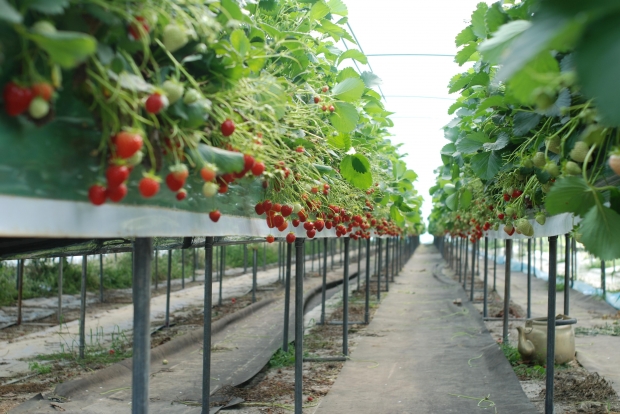 Loading... Please wait...
Loading... Please wait...Save Money. Grow Your Own!
Fast Plain Box Shipping.
We ship to the US & Canada.
Grow Your Own!
The best organic pest control methods
Posted on 25th Nov 2014
These days, a lot of soil farmers and hydroponics farmers have been finding out that there are lots of options for keeping worms and other crawly critters off of plants. With the rush toward organics and sustainable non-toxic farming practices, organic pest control has become a big issue in today's industry.

Growers can take advantage of a number of different strategies to help make hydroponic produce better, and protect it from a wide range of insects.
Protective barriers
One simple way to avoid damage from pests in hydroponics is simply to create an environment where these insects traditional can’t access them. Hydroponics offers more options for this, because plants and generally kept away from the outside elements.
For example, in small closed hydroponic systems, plants never get exposed to the outdoor air and the insects that live in it. That eliminates pests naturally, without the use of chemical products.
Even in outdoor greenhouse hydroponic systems, growers can use different kinds of protective barriers to make sure that pests stay away from plants. Some types of polyester fabric are popular ways to separate plants from natural predators, without a lot of difficult maintenance.
Oils and Soaps
There are also a wide range of organic mixtures that growers can use to coat plans to keep them protected from different kinds of pests.
For example, in general, growers can use insecticidal soap with elements of animal fats that react with the skin of many insects. This can help with mites, aphids and some kinds of flies -- but some of these materials have the potential to burn plants.
Some of the above insects, as well as some caterpillars and beetles, can also be affected by plant oils that growers can spray on plants.
Parasites
Certain types of parasites can be effective against different kinds of worms, aphids and beetles.
Plant Placement
Another good strategy is to keep certain plants next to your other plants. For instance, surrounding tomatoes with basil will keep some of the tomatoes natural pests away, at least to some extent. Many growers have experimented with including certain kinds of green herbs that insects don't like around the sweeter, tastier vegetables and fruits that the insects like to destroy.
Dried Spices
Spices such as cayenne pepper can also be effective organic pesticides in some situations. In fact, dried pepper and garlic can both be insect repellants. Mix these with some essential oils, and you'll have a neat handmade spray to ward off white flies, aphids and other pests.
These are some of the ways that growers can do pesticides without introducing harmful or potentially toxic elements to their grow spaces.
